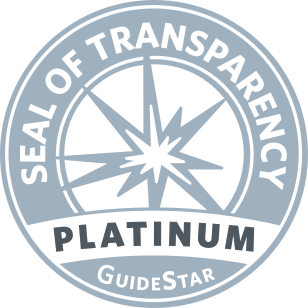I Am Blind, but I Am Not the Blindness
Beacon Stories
Dr. Ann Wagner is a Board-Certified Clinical Psychologist who has worked at the Minneapolis VA HCS for the past 23 years, serving veterans and their families. She works primarily on the PTSD Clinical Team providing evidenced-based assessments and interventions for PTSD and other trauma-related problems. Dr. Wagner herself is legally blind due to retinitis pigmentosa.
By Ann M. Wagner, PhD, LP, ABPP, Board Certified Clinical Psychologist
In my work as a clinical psychologist, I have come to understand that each person is a whole human who matters, entirely apart from any disability they may have and any emotions they may be feeling. It’s common for people with progressive vision loss, such as I experience with retinitis pigmentosa (RP), to feel grief and helplessness each time they realize they can no longer see something they used to be able to see. I know those feelings very well.

Ann M. Wagner, PhD, LP, ABPP, Board Certified Clinical Psychologist
For example, in my late 20s, I found I could no longer see the notes I had taken with a regular pen. I switched to a bold marker with a wide tip, but I grieved the loss of that regular pen. Around the same time, I needed to stop driving. I experienced much grief with that loss. More recently, I have lost the ability to see features in the faces of people I love. A few years ago, with perfect lighting conditions, I could make out some of their features. Now, I cannot.
RP is common in my family; three of my siblings, my mother, my grandfather, two uncles, and several cousins shared the diagnosis, so I knew what awaited me as I got older. Today, two nieces in their 20s face similar prospects. I try to model for them what I have learned about dealing with grief and loss.
In my work, and also in my personal life, I use principles of Acceptance and Commitment Therapy (ACT), developed by Stephen Hayes, and Narrative Therapy, developed by Michael White and David Epston. These principles help me accept what I cannot control and relate to the blindness as separate from the whole person I am. They inform my adjustment goals of striving to show up each day with actions I approve of, consistent with my values.
Blindness may walk alongside me and have unwanted effects that require problem-solving, but it is not who I am. My values and my actions define who I am.
I choose how to relate to the emotions of grief and helplessness. I try to remember to have compassion for myself and to understand what emotions are for: They only show up to tell me what matters to me, what I value.
The grief tells me that I value the idea of seeing what I was able to see a year ago and that I care about being as self-sufficient as I can be. The helplessness tells me the truth that I cannot control the vision loss and that I care about my functioning. If I did not care about these values, the emotions would not show up. The emotions are self-validating if we can open up to them and not struggle with them. Validation of the emotions is important for adjustment to the new truths in the present moment.
If you are troubled by such feelings, here are some ideas for inviting in a truth-based relationship to grief and helplessness:
- Understand that your emotions matter, and they need validation from you. If you can share with someone, and it feels healthy, allow another person to express care and validation for you and your emotions. Make clear that you are not seeking advice; you just need to express your emotions and receive a caring acknowledgement. Of course, if you want advice, ask for it.
- Strive to externalize any defense patterns that block experience of your core emotions, like anger. One idea might be to give your anger a name; personally, I call all my defense patterns “Melvin.” This allows me to look at them with a little distance and decide which parts I might want to keep and which I want to pivot from. (If your name happens to be Melvin, I apologize. I mean no disrespect. It is a fine name.)
- Claim who you most want to be in this moment. Recognize the defenses that function to suppress your core emotions – they may include use of substances, intellectualization, isolation/withdrawal, rumination, over-thinking, distractions like excessive TV, staying in bed, thinking of self-harm, and many other behaviors. We have all been programmed to believe that our painful emotions are somehow bad, and we have been given many messages that support the avoidance urges. You are not to blame at all. Take a deep breath, observe the programming, observe the urges to avoid, and choose to be with your core self, be with your emotions as they come and go in natural waves, and seek out valued actions.
You are not the blindness. You are a whole person, uniquely you. And you matter.
Interested in obtaining mental health support?
- Search online resources by searching “Acceptance and Commitment Therapy.”
- Recordings of the mental health presentations at recent Foundation VISIONS conferences are available from 2020 and 2022.
- If you have insurance, inquire about in-network mental health providers.
- Your county’s social services office can also offer sources of help, as can your state’s services for the blind and visually impaired.
- If you are in crisis, call 988, and if you feel unsafe, call 911.




